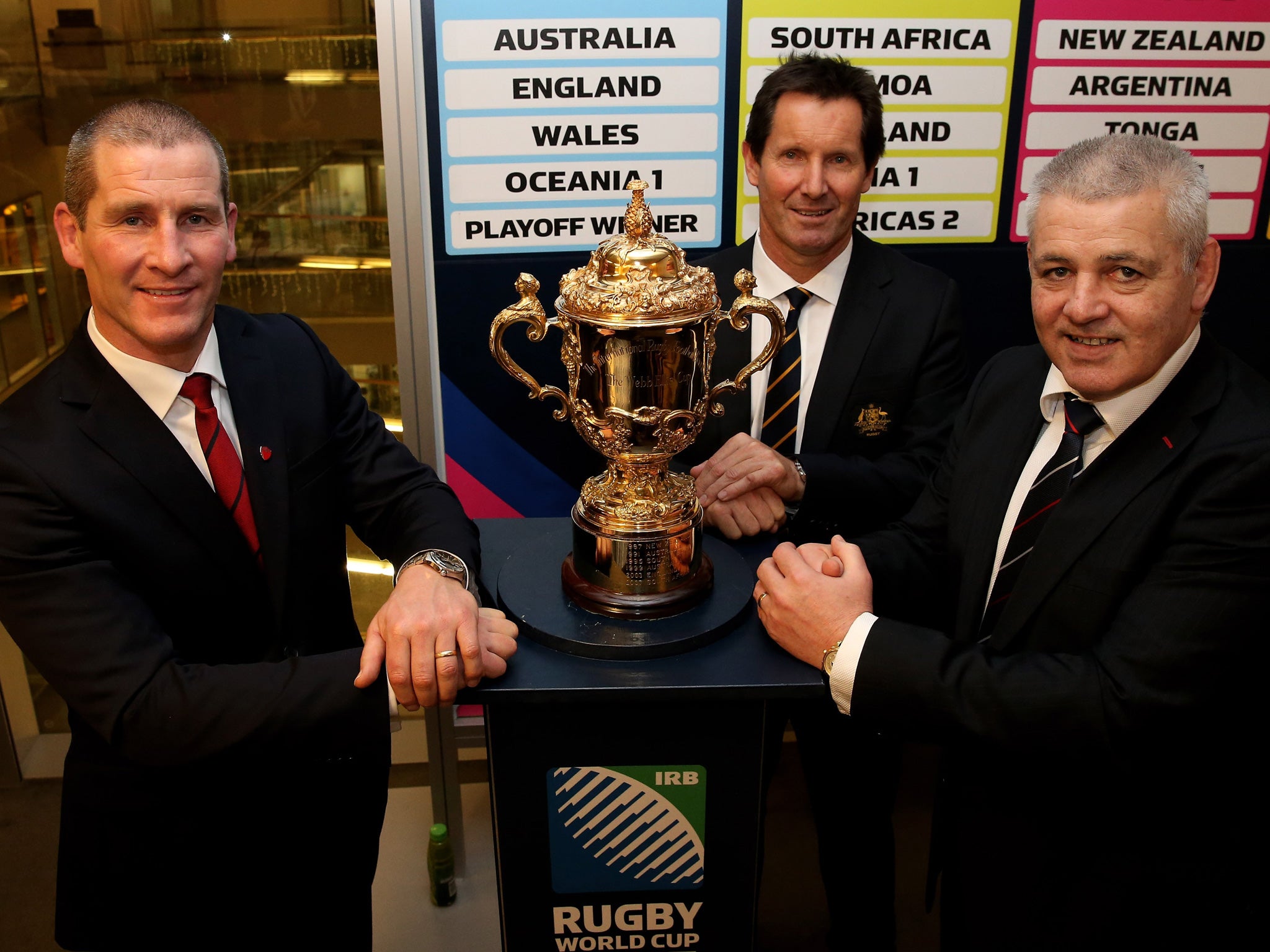England and Wales at war over Group of Death venue
Welsh demand Cardiff showdown as rivals drawn together in 2015 World Cup pool

It was written in the stars in filthy great capital letters; Stuart Lancaster, the coach of the moment after the red-rose victory over the All Blacks at the weekend, used the word "fate" – and sure enough, it came to pass. England, hosts of the next World Cup in 2015, found themselves paired with Wales at the tournament draw in London, thanks in part to a politician by the name of Boris Johnson, and as a result, the organisers were left with the most painful of headaches.
Roger Lewis, the chief executive of the Welsh Rugby Union, ratcheted things up immediately by calling for the big contest to be staged at the Millennium Stadium in Cardiff. "We would be very welcoming hosts," he said, mischievously, "so let the discussions begin." And why, in his wildest dreams, would he expect England to put their home campaign in peril by giving up home advantage against such dangerous opponents? "I'd like to think they'll embrace the opportunity to play the match at the finest rugby stadium in the world," Lewis replied.
Debbie Jevans, the recently-appointed chief executive of the 2015 delivery body and the woman who drew England alongside Wales in a group also featuring a half-decent side in the double world champions Australia, said no venue decisions would be made before March. She added, however, that nothing had been ruled out. For the moment at least, there remains a possibility that all roads will lead to the Welsh capital for the most eagerly anticipated game of the pool stage.
According to Lewis, a maximum of eight games will be played at the Millennium Stadium, which has a 74,000-plus capacity and is on the roster because the Rugby Football Union needs to shift 2.9m tickets across 48 games – or to put it another way, attract an average gate of almost 60,000 – in order to meet some very demanding financial targets. As Australia would be most reluctant to play Wales anywhere to the west of the Severn, on the grounds that it is not a Welsh World Cup, it is not wholly out of the question that England will be asked to travel to Cardiff for business reasons.
If it does not turn out that way, the Wales coach, Warren Gatland, will be anything but heartbroken. "We've had some success at Twickenham," he said confidently in reacting to the draw. "It's not a venue that holds fears for us. What do I think of the group? I think it's fantastic. It's a tough pool, but sometimes that helps in a World Cup campaign. If you look at New Zealand's record in global tournaments, a soft pool has sometimes been their undoing because they haven't been tested enough by the time they reach the knockout phase."
Johnson, the mayor of London, was the man who placed Wales in Pool A, having celebrated the prospect of a seven-week union jamboree by poking fun at the "namby-pamby spheroid fetishists" of the football community. It was the most controversial comment of the event until Lewis made his bold pitch for the cross-Severn derby fixture.
If Pool A will be by some distance the most brutally competitive group – the fourth-ranked side will almost certainly be Fiji, who know what it is to upset the applecart at these global gatherings – Scotland's representatives were not wildly joyous at the prospect of facing South Africa, always a major World Cup force, and the fast-improving Samoans in Pool B. The Pacific islanders are currently seventh in the international rankings, five places higher than the Scots.
Join our commenting forum
Join thought-provoking conversations, follow other Independent readers and see their replies
Comments
Bookmark popover
Removed from bookmarks